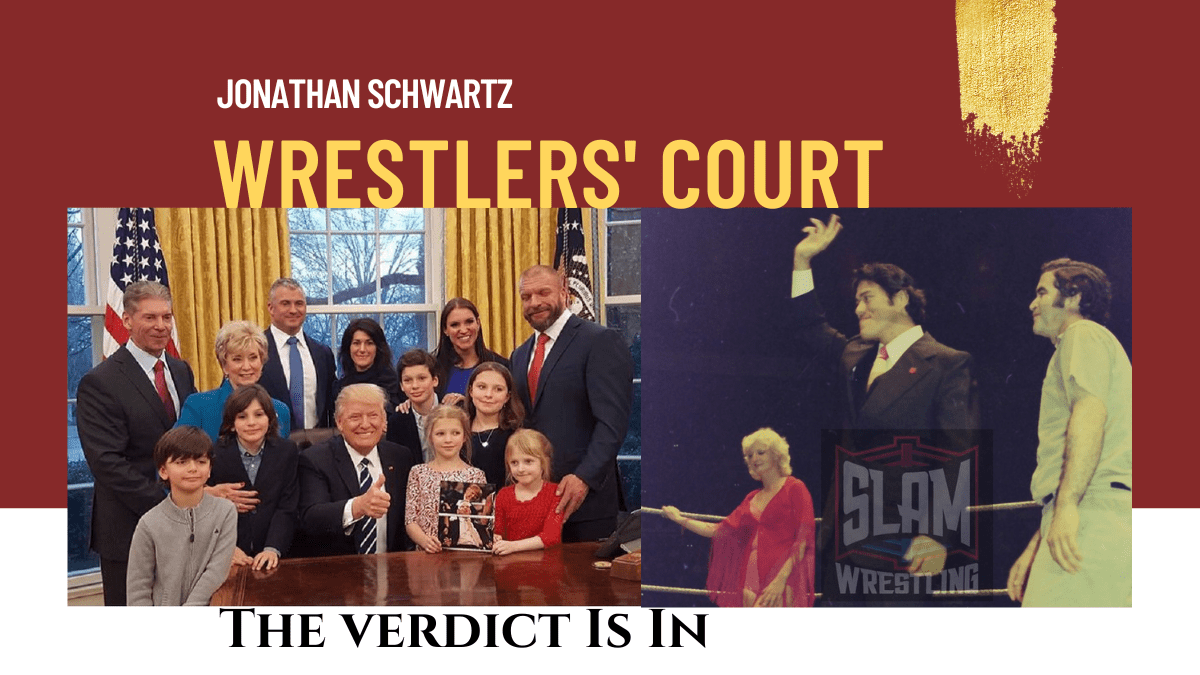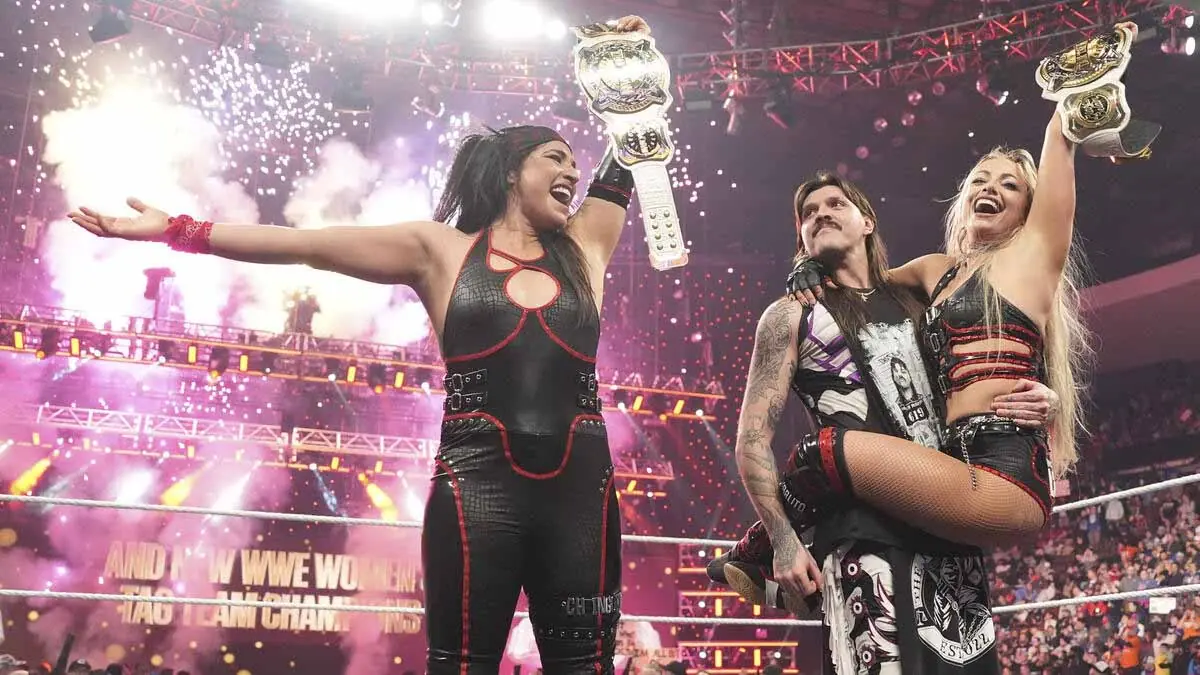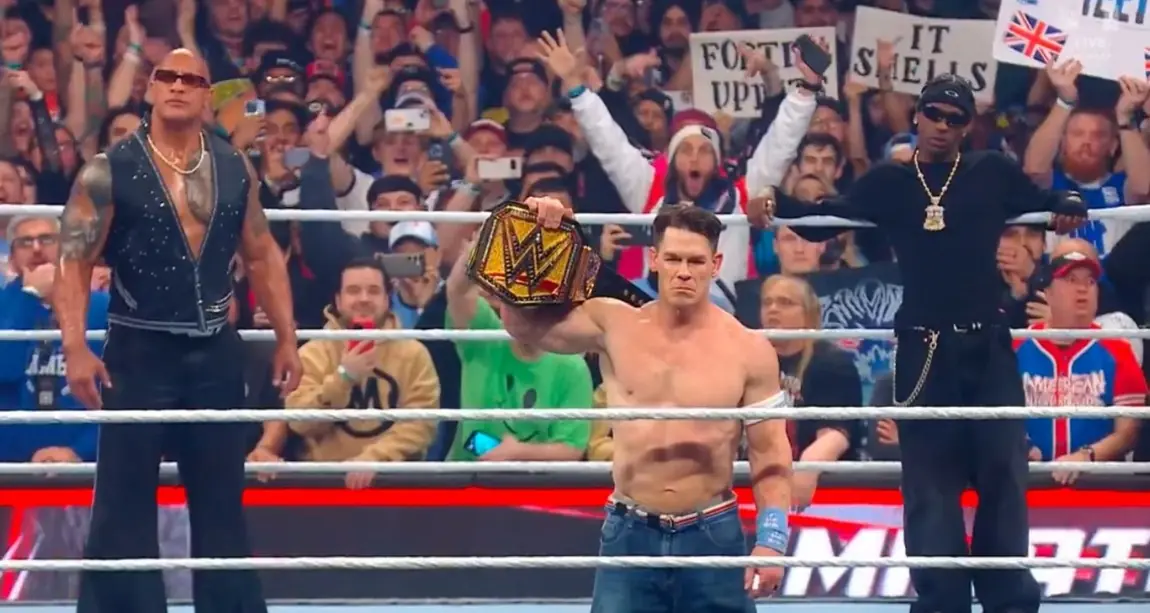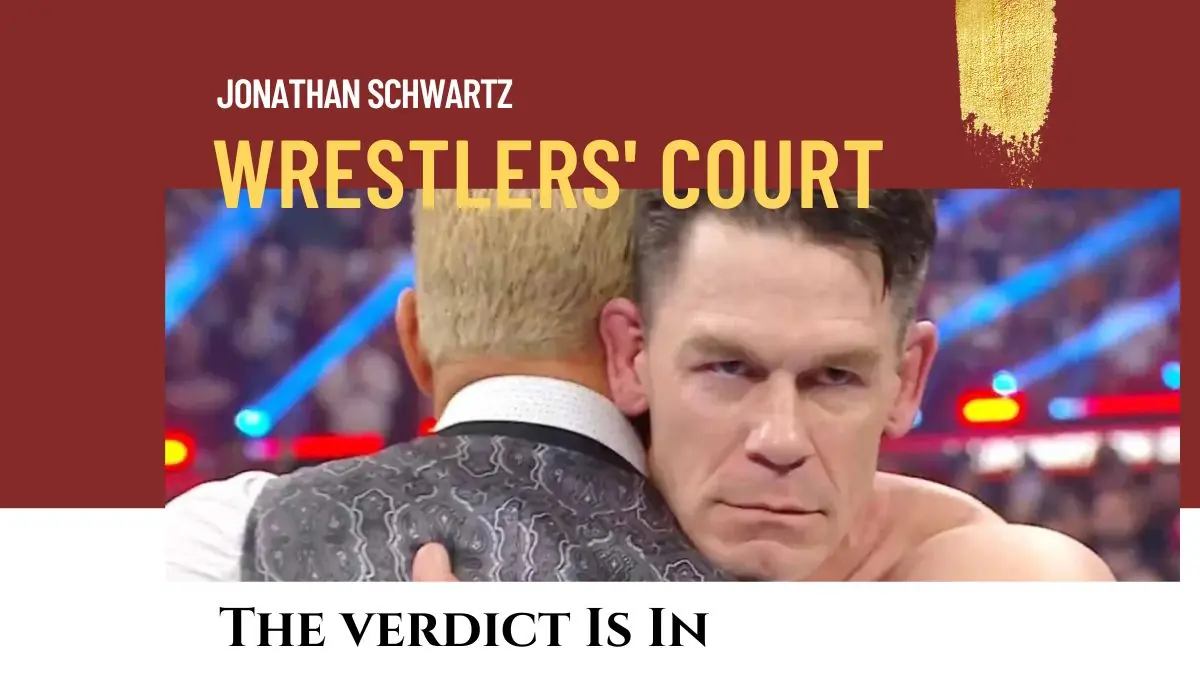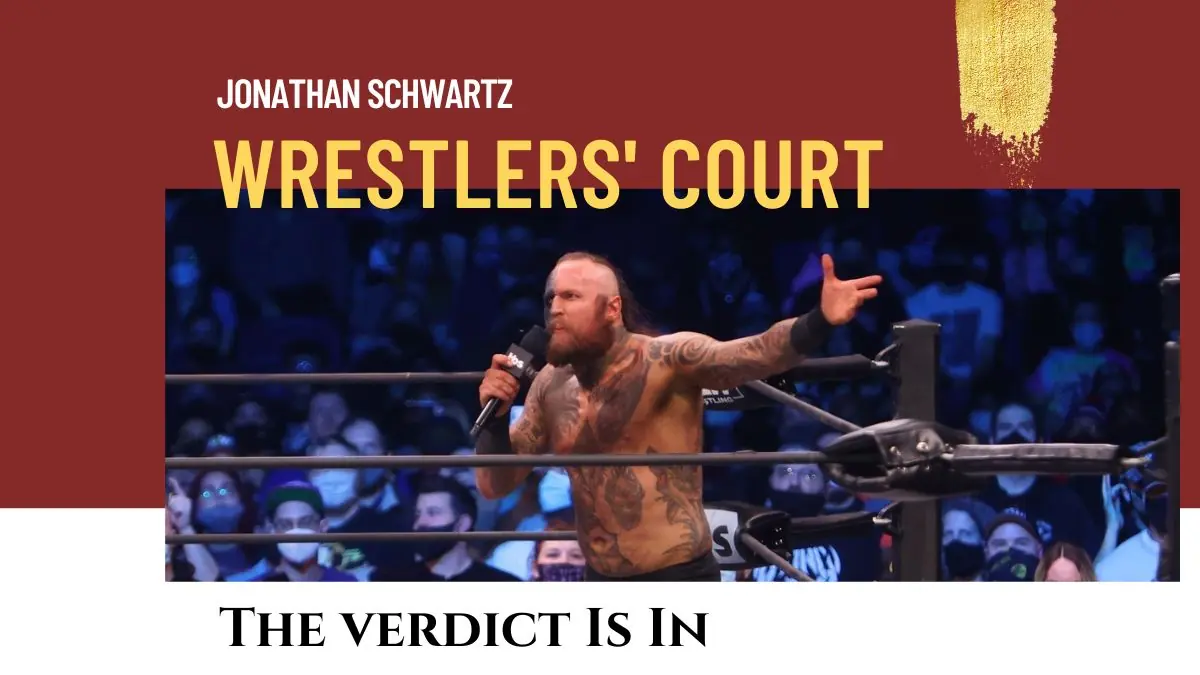I started this column on the eve of the 2024 United States Presidential election.
By now, we all know the results. Donald Trump will be the next President of the United States of America, defeating Democratic candidate Kamala Harris by a significant margin. Barring any Earl Hebner-style shenanigans, it looks like this election was fairly contested and that Americans, faced with the ballot question “are you better off today than you were four years ago?” answered with a resounding “NO”, notwithstanding the fact that four years ago the US and the rest of the world were mired in the COVID-19 pandemic.
In the wake of the election, President-elect Trump has announced several planned appointments. Notably, former WWE CEO Linda McMahon is set to co-lead Trump’s transition back to the Oval Office. Later in this column I’ll show why this is not a surprise. McMahon, who headed the Small Business Administration during Trump’s last term, is rumored to be appointed to Trump’s Department of Commerce. Despite her husband’s alleged antics, the lawsuits and investigations (which may ultimately disappear now) hanging over his head, Linda McMahon feels like a sensible pick: at least more so than putting former NFL player Herschel Walker in charge of the US missile shield or anti-vaccination conspiracy theorist Robert F. Kennedy Jr. in charge of public health.
I won’t bore you with an extensive political analysis — there’s way too much of that out there, much of which is rendered moot by the election’s results.
If you’ve read this column before, you know I follow politics up here in Canada and the US. You can guess my political leanings, which are my own and in no way reflect any professional, workplace or other affiliations. My main interest here is professional wrestling and its ties to the broader world. Politics is part of that.
For present purposes the 2024 US Presidential election is notable for the number of professional wrestling references it has occasioned. Pardon the paywalls, but news outlets have repeatedly cast Donald Trump’s political career in pro wrestling terms:
- the BBC (Will The Undertaker and Hulk Hogan help put Trump back in office?)
- Politico (How Pro Wrestling Explains Today’s GOP – POLITICO)
- The Atlantic (Trump’s WWE Theory of Politics – The Atlantic)
- MSNBC (At an RNC that included Hulk Hogan, Trump seemed like a washed-up wrestler)
- The New York Times (Opinion | The Best Way to Explain the G.O.P. Is Found in the W.W.E. – The New York Times)
- CNN (Trump CNN video: Pro wrestling is the perfect metaphor | CNN Politics)
Often tongue-in-cheek, these articles are common. Trump’s campaign style owes more to wrestling promos than to policy discussions. I suspect so many have been written because Trump and Vince McMahon share several alleged bad behaviors.
Outside the present campaign, there have been other references to the intersection between Donald Trump, politics and wrestling. SlamWrestling has reviewed books on the subject: Trumpmania: Vince McMahon, WWE and the Making of America’s 45th President and Power Players: Sports, Politics, and the American Presidency. Not to pat myself on the back like Barry Horowitz, but I’ve been writing about this connection for years. Feel free to scan the archives for more.

From the moment he declared his interest in politics, Trump’s rhetoric followed professional wrestling’s conventions — talking supporters into the voting booth like fans to an arena. Trump speaks grandiosely about his accomplishments. He diminishes his opponents’ deeds. He insults political rivals, coming up with crass nicknames for them. He picks out targets and mocks them. He uses simple slogans and tries to engage his supporters in chants at his rallies. He begs off in the face of opposition and blocks out dissent. He makes use of friendly platforms and promises improbable victories. He repeats his own take on events, which may bear little resemblance to the world outside his understanding of it. He takes photos hugging the American flag and sells signed Bibles and expensive watches (what’s a wrestling event without a merch table)?
At campaign events Trump has used WWE style entrances with theme music and spotlights. In at least one case he rose from under the floor like the 1990s “Brood” stable (ironically, two-thirds of which were Canadian). Recently, Trump’s campaign released a video where the Undertaker’s theme played as he disembarked from his private jet. A few of these videos have since surfaced for different events. I find this concerning from a campaign perspective since Taker’s theme is a remixed Funeral March.
Trump and Vince McMahon are said to be friends. Trump hosted WestleManias IV and V at the Trump Plaza Hotel and Casino. He made appearances at WrestleMania VII and XX, sitting next to Jesse Ventura at the latter. Ventura opined that the US might “need a wrestler in the White House.” As Vince became Mr. McMahon, Trump turned babyface. A hair vs. hair match between Bobby Lashley and Umaga (proxies for the billionaires — why get their hands dirty?) was marketed as a main event of WrestleMania 23. In 2009, McMahon introduced Trump as a storyline owner of WWE Raw, which ended quickly when WWE’s real-life stock tanked. When Vince McMahon was killed in storyline, Trump allegedly suspended his disbelief enough to call McMahon directly to make sure he was OK. Between 2007 and 2009, McMahon paid $5M to Trump’s charitable foundation, which emerged during McMahon’s latter-day scandals. In 2013, Trump was inducted into the WWE Hall of Fame’s Celebrity Wing. Apparently, Trump has stuck by McMahon since sexual and corporate misconduct allegations forced him from WWE.
The two speak regularly.
Media outlets make hay about Donald Trump’s connections to Vince and Linda McMahon. As noted above, Trump has reciprocated their support politically. Linda, who ran twice for the US Senate and lost, served in Trump’s first cabinet as the head of the Small Business Administration. She appears primed for a more prominent role in his second term. Linda has already been named co-chair of Trump’s transition team as he retakes the Presidency. She is rumored for a high-ranking position within his government. I wonder whether Trump’s victory may affect the current Department of Justice investigation against Vince McMahon. Vince has yet to be convicted of a crime, so he’s not eligible for a pardon. He and Linda are said to have lived separate lives for decades, so the stain of the allegations against him are unlikely to affect her… but the optics are still lousy.
Elections are about getting voters out to support their preferred candidates. The traditional male 18-35 wrestling fan demographic is essential to this goal. Corporately, WWE has long chased political clout. Before Linda McMahon’s Senate campaigns precluded such activities, WWE launched “SmackDown Your Vote” in 2001. This campaign was aimed at increasing voter registration and participation. WWE sent wrestlers to report back from parties’ political rallies and created Public Service Announcements featuring WWE Superstars encouraging viewers to vote.
Some wrestlers become politically engaged because of their own interests. It seems like pro wrestlers as a group lean to the right of the political spectrum (with notable exceptions). Maybe this has something to do with the open political affiliations of their bosses — Tony Khan is also a Republican donor. Maybe it has to do with wrestling’s position on unionization, or publicly-funded health care, or women’s rights, or diversity, all of which are areas where wrestling has struggled and none of which align with Trump’s record.
Professional wrestlers have become particularly politically active this election cycle. Hulk Hogan appeared at several Trump rallies, tearing off his shirt and delivering borderline (speaking charitably) racist promos against Democrat nominee and current Vice President Kamala Harris. Trump shifted his campaign strategy away from in-person events and potentially hostile news interviews and towards sympathetic, vaguely conspiratorial podcasts. He was recently the Undertaker’s guest, with Kane playing a politically-informed Ed McMahon (Kane is an elected official, the Mayor of Knox County, Tennessee, and he is also a potential gubernatorial candidate once his term ends). Chris Jericho donated to Trump’s campaign and hosted Donald Trump Jr. on his own podcast.

In response to these endorsements, former WWE wrestlers Mick Foley and Batista signaled their support for Harris. Foley has made media rounds. The Rock endorsed Joe Biden in 2020 but pulled his support for Biden this time around, opting to “keep his politics to himself.” He also claims to have been asked to run for President at the height of his popularity and made this a plot point on his Young Rock series. Former Minnesota Governor Jesse “The Body” Ventura also supports Harris while Jim Cornette is a confirmed Democrat.
I am weary of celebrity political endorsements. As much as I may like any celebrity, I don’t pretend that we are friends or that their lifestyles have much bearing on mine. These endorsements and the breathless analysis thereof take away from the issues that should inform voting. Arguing about how “washed up” or “out of touch” a celebrity must be to claim a political stage is a waste of time. Turning a political disagreement into an indictment of that celebrity’s body of work or value as a human being is toxic parasocial silliness.
Wrestling’s link to politics is almost as old as the United States. We’ve all heard the apocryphal story of Abraham Lincoln entering the ring — some claim he had as many as 300 matches. You may not know that George Washington also participated in a forerunner of modern wrestling (although likely less kayfabed since he could not tell a lie).
In 2021 Slamwrestling’s Bob Kapur wrote about wrestlers who ran for office — the examples seem isolated but may signal a trend. He covers the most prominent examples. It’s a worthwhile read: ‘We shocked the world!’ – A look back at wrestlers turned-politicians. I’ll add that in 1965 Canadian wrestling legend “Whipper” Billy Watson ran as the Progressive Conservative Party of Canada candidate in York East in the 1965 federal election. Watson lost to his Liberal opponent in a shoot.
“Sailor White / Moondog King” Edward White also took aim at federal office. In May 2000, he ran in a St. John’s West by-election, representing the Canadian Extreme Wrestling Party. His motto was “Parliament Needs a Moondog.” In 2004, White ran representing the Green Party of Canada in Bonavista—Exploits. He lost both times.

Antonio Inoki was more successful. He served two controversial terms in Japan’s House of Councillors, which is loosely analogous to the US elected Senate. Atsushi Onita and Hiroshi Hase have also served. Since Bob’s article, former wrestlers including Tough Enough winner Dan Rodimer, indy garbage wrestler/ex-WWE referee Drake Wuertz, former tag champion Rick Steiner and DNA of TNA Matt Morgan have run for local office with mixed results. Up here in Canada, former “All American Boy” Raymond Rougeau has been involved in Quebec municipal politics since he retired from wrestling. In 2021, he was elected Mayor of Rawdon with 61% of the vote.
In a former life, I worked as a policy analyst and lawyer for community advocacy organizations. It was great, fun, meaningful work and a part of me still misses it. I often found myself working alongside people with whom I disagreed. Regardless of our positions on issues our interactions began with mutual respect and an understanding that we were all pursuing visions of a better, more just world. I learned that there were good and friendly people across party lines. Basing policy on shared values and hard evidence had a way of bringing people with different viewpoints together.
I loved the commonalities we found beyond work. Behind the scenes, pro wrestling is huge in political circles. Catchphrases or references to old-school grapplers are common — a secret handshake between adversaries, or a tacit acknowledgement that we are people with interests and lives beyond the professional roles we play.
Some politicians are open about their fandom. Former Alberta Premier Ralph Klein might be the best example. Klein’s father had some success as pro wrestler Killer Klein. He was a fixture at the Calgary Stampede and openly supported Stu Hart’s promotion for years. He attended Owen Hart’s private funeral. Former Ontario MPP Tim Hudak now has a podcast where, among other subjects, he openly discusses his love of wrestling going back to the 1980s. Former Toronto Mayor Rob Ford was also a fan. He helped promote a convention by defeating Hulk Hogan in an arm-wrestling match, drawing the ire of the Iron Sheik. Ford called Hogan his hero.
After Ford finished his term as mayor he ran for his old seat on Toronto’s city council. TV crews were set up Ford’s (and other candidates’) home to capture their reactions. Ford won his seat handily. His young son erupted in an unmistakable Daniel Bryan “Yes” chant. Thinking back on that evening as a parent now, I wonder if Ford was happier about his win or about his son’s expression of joy — how it reflected a hobby they shared. One of my favorite parts of wrestling is watching and talking about it with my own kids.
Cynics suggest that politicians’ wrestling fandom can be as staged as wrestling itself. Writers (who likely aren’t fans themselves) see it as a way of pandering to the lowest common denominator of voters. In the run up to the 2008 Presidential election, Democratic nominees Barack Obama and Hilary Clinton, and Republican nominee John McCain delivered stilted, awkward promos on an episode of Monday Night Raw. It’s great that these candidates sought to expand their audience, but their clear lack of familiarity with wrestling and its fans suggested that nobody on their respective campaigns knew what they were talking about. I don’t think American electoral politics have recovered. It’s been a while since a truly relatable candidate has emerged.
Campaign history is full of these gaffes: sweaty debate appearances, tank rides, flight suits, cheesesteaks with Swiss, robotic donut orders. Canadian political strategist Warren Kinsella has long stated that voters respond best to the candidate they think is a “hell of a guy” — often captured in polls as “the politician you’d rather drink a beer with.” It’s a simple, honest approach that works for WWE babyfaces as well as presidents (and prime ministers). I don’t know whether that candidate exists in the current election, but if one emerges next time around I believe they’ll do well.
Authenticity is important in politics. Klein, Hudak, Ford, Trump and President Jimmy Carter (who was such a fan that pro wrestling magazines still use an image of him headlocking Mr. Wrestling II) were and are open, genuine fans. It’s a point of relatability or people who might not otherwise follow politics. More importantly, it speaks to them being more than their parties’ talking points.
I finished this column after Trump declared victory — a relatively clean victory following the endless controversy that accompanied the last election. I expected recounts and court challenges and pyro and ballyhoo, but so far the transition of power looks to be smooth. To borrow from wrestling parlance, politics can be a shmozz, and (hopefully) in rare cases, a work. For me, the most significant post-election event is Linda McMahon’s emergence as a key member of Trump’s team. It’s a validation of sorts, a through-line from the world of pro wrestling to the political realm.
Four years from now we get to do the whole thing again. Trump will be ineligible to run, though that might not stop him from trying. I wonder whether his successor and his or her Democratic opponent will have learned from Trump’s success, and whether pro wrestling strategies and tactics will be fully ingrained in politics going forward.
I’ve said it for years: all politics is pro wrestling.
RELATED LINKS
